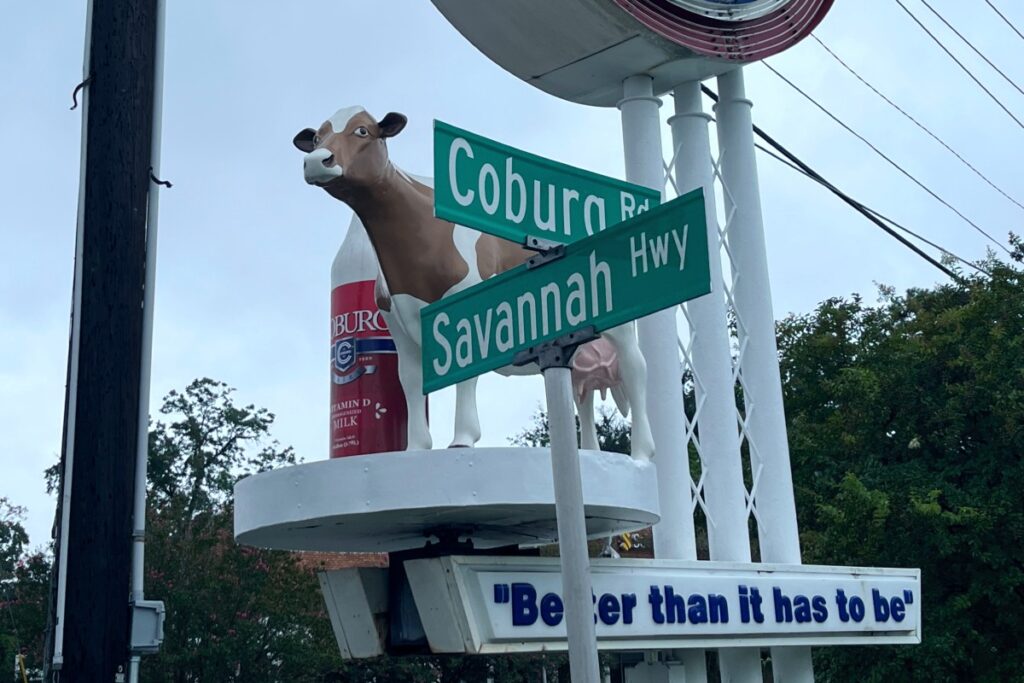
By Andy Brack, editor and publisher | There’s an uncomfortable and nervous anticipation that’s omnipresent as you wait for a big storm to blow through. It interferes with getting much of anything at all accomplished.
 Millions felt this sense of being stuck as Hurricane Idalia pounded Florida and then weakened to tear through south Georgia and South Carolina as a tropical storm.
Millions felt this sense of being stuck as Hurricane Idalia pounded Florida and then weakened to tear through south Georgia and South Carolina as a tropical storm.
As winds and rain pick up, you wonder whether you have enough water, milk, beer, flashlight batteries, snacks and toilet paper. You worry about the meat stored in the freezer and whether it will spoil if the electricity goes out.
You try to read, but end up checking a weather app on your phone too many times to see how close the madness is to your location. Then you worry whether the phone will have enough of a charge to keep going. So you get up and plug the phone in, only to check it again 15 minutes later – news, weather, Facebook and what I still call Twitter.
In places like Charleston and Edisto Beach that are near water and marsh, you worry about rain and wind like everyone else – will a limb or tree fall on the house, will the fence get blown down, will anything damage the car? Then you start thinking about storm surge and flooding, especially when there’s a Blue supermoon making tides much higher than usual.
Then you shake your head and try to stop your racing brain. But you still can’t read. So you turn on the television and see almost the same forecast you saw an hour earlier as the weatherman cranks into high gear with all sorts of fancy pictures, graphics and predictions. You watch television reporters getting rained on. You wonder where in the world the Weather Channel’s Jim Cantore is.
Then maybe you have a beer and try to take a nap on the couch. But a cat brushes up against you or the dog’s snoring is so loud that you can’t relax. More than anything with the storm on the way you just can’t relax.
You persevere. And then you start calling or texting friends, trying to figure out if they’re doing anything much different. (They aren’t.) But you talk and text and text and talk. Unbeknownst to you, millions of others are doing the same thing.
These conversations are magic – even for a short time. As you are catching up, you may realize you might not have had a deep conversation with the old friend for a while. You may begin to understand these connections during weather events are special. You and countless others strengthen and deepen friendships. Via phone, email and text, you show how you care for friends and, by extension, for our communities.
You also might start thinking about how many people are helping others before, during and after a storm – people filling sandbags, cooking meals, clearing yards, checking in with others to make sure they’re safe, cleaning up. These selfless acts knit our communities and make them stronger. These are the kinds of things that make our democracy stronger.
During a time when too many distrust the local, state and federal governments that civilize our nation, we need to bring a little of that connecting magic from a storm like Idalia to bear more fruit. Think of how good you feel knowing and seeing governments respond in times of crisis. They are a reassuring blanket with all of their emergency operations centers, warnings and checklists. And think about how you feel when you see a clean-up crew removing debris just hours after a storm’s impact or when the regular shift of a garbage truck resumes almost immediately.
Our governments can be a pain at times, but they often work. They are civilizing, vital components of a democratic society. Let’s use the kind of community spirit we have during storms and disasters to build our communities to be stronger every day of the year.
Andy Brack, editor and publisher of the Charleston City Paper and Statehouse Report, last week was named first-place winner for political columns in the 2023 national contest by the Association of Alternative Newsmedia. Have a comment? Send to: feedback@statehousereport.com.















 We Can Do Better, South Carolina!
We Can Do Better, South Carolina!